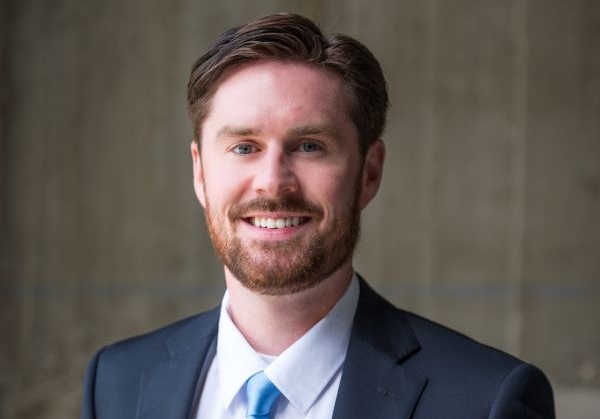On the court: Basketball alum Guldseth begins career as attorney in Helena

Kale Guldseth (Business and Information Technology, ’18) comes from a long line of Oredigger competitors. His grandfather played basketball at Montana Tech. His dad played basketball at Montana Tech. And his cousin currently plays on the women’s basketball team. Growing up in Butte, Guldseth had a dream.
“All I ever wanted was to play basketball at Montana Tech,” Guldseth said.
Guldseth made his dream a reality. He excelled on the court and in the classroom. He was named Academic All-Conference multiple times and named a NAIA Daktronics Scholar Athlete. He graduated with honors, and he’s found that Montana Tech not only prepared him academically for one of the Pacific Northwest’s top law schools, but also as an attorney in the field.
“There’s a competitive strategic nature to being an attorney, you either have it, or you don’t,” Guldseth said. “At Montana Tech, I was able to keep competing, and now I’m able to keep competing as an attorney. There are things out of your control, just like when you are in athletics. Montana Tech taught me to compete in the professional environment strategically.”
Guldseth graduated from Seattle University School of Law in 2021 and landed not one, but two-year-long, extremely competitive federal clerkships, with Chief Judge Brian Morris of the U.S. District Court of Montana, and Chief Judge Ben Hursh in the United States Bankruptcy Court. He currently practices at Drake Law in Helena, focusing on civil litigation, estate planning, small business and real estate transactions, and easements and property disputes.
Guldseth says the most challenging part of reaching his goals was persevering.
“It takes years to go through law school and a lot of discipline to be locked in all the time,” Guldseth said. “It’s a huge commitment with long hours studying, to be in class, and take every test. Once you are done with law school, you still have to take the bar.”
The bar is a beast that typically requires a summer of intense studying after three years of law school. Guldseth previously had a good practice run at studying hard for another exam, the LSAT, the law school admissions test.
“I bought a course that tutored me and did multiple practice tests,” Guldseth said. “It taught me how to think for those standardized test questions. I also met with somebody who was just a natural test taker, too. They had no connection to law, they were just good at tutoring for the SAT and ACT. It was just a good way to train. The LSAT has nothing to do with legal analysis and legal knowledge. You have to know how to take the test.”
Seattle University enrolled 214 students in 2023. More than 40% of applicants are not accepted. Applicants typically have high LSAT scores and grade point averages. Guldseth says he was prepared academically.
“The Business department was phenomenal at keeping me engaged,” Guldseth said. “I learned to think on my feet and to talk in front of people. Being able to read and write well is a huge part of being an attorney. Pat Dudley taught a Business Ethics class that was very engaging, with not quite legal issues, but with critical thinking. It had a lot of work that translated well to law school.”
Guldseth has advice for prospective Orediggers who have the goal of becoming a lawyer.
“Take critical thinking classes,” Guldseth said. “As far as academics go, you must get good grades to get into law school. Develop good habits early. Take care of your body. If you aren’t physically feeling well, it’s hard to keep up mentally. Stay the course. Never give up. Don’t think this is a pipe dream. It is doable, if you are willing to put in the work.”